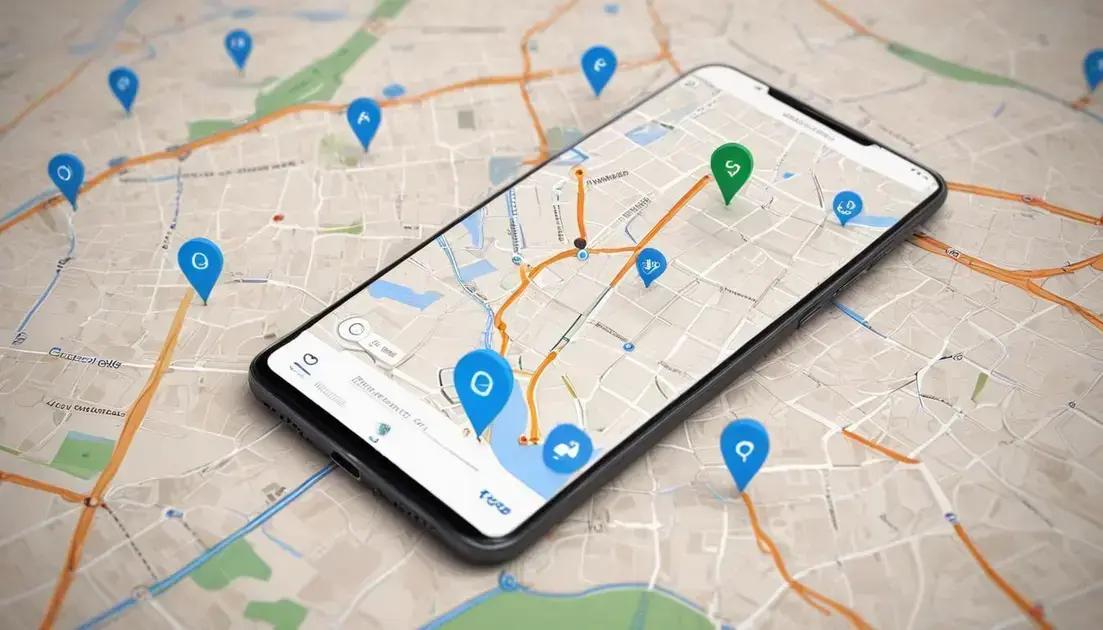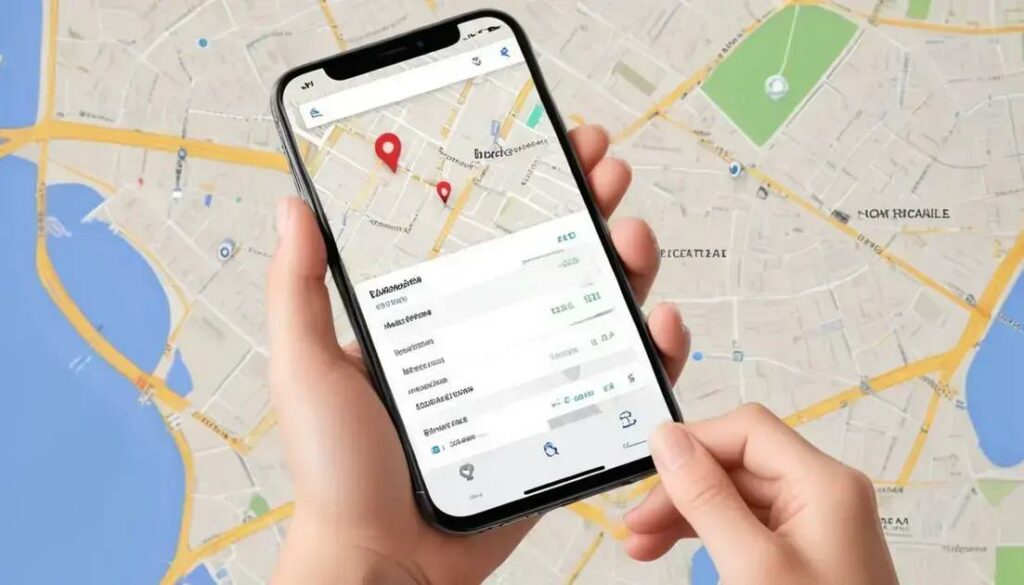In the ever-evolving world of technology, Address Lookup plays a crucial role in making location-based apps more efficient and helpful. This article delves into its transformative impact.
Address Lookup Functionality
Address Lookup is a key feature that many location-based apps use. It helps detect where you are and find nearby places. When you type in an address, this tool checks databases to give you accurate information. This process involves matching your input with registered addresses.
Many companies use Address Lookup to improve user experience. For example, a food delivery app needs to know your exact location to bring food to you. If the address is wrong, it can lead to delays or even wrong deliveries.
How It Works
When you enter an address, the app sends this information to an address lookup service. The service checks its records to find a match. Once it finds the right address, it shares important details back to the app, like coordinates for maps or nearby facilities.
Benefits of Address Lookup
This feature makes it easier for users to find places quickly. Instead of searching through many addresses, the app suggests relevant options right away. It also reduces errors. Users are less likely to enter incorrect information, which saves everyone time.
Common Uses
Address Lookup is used in various industries. Delivery services, real estate, and travel apps all benefit from it. When it works correctly, users enjoy a smoother experience and can trust that the details they receive are reliable.
Challenges in Address Lookup
However, there can be challenges too. Sometimes databases may not have the latest address changes, leading to errors. Keeping information up to date is crucial for a successful address lookup system.
Understanding and utilizing Address Lookup is vital for any app that relies on location. It enhances performance and user satisfaction, which can lead to repeat usage.
Key Features of Geolocation Apps

Geolocation apps come with several key features that enhance user experience. These features make it easy for users to find their way around and access nearby services. One important feature is real-time tracking. This allows users to see their current location on a map, which is really helpful when navigating.
Another cool feature is location sharing. Users can share their location with friends or family. This is perfect for coordinating meetups or ensuring loved ones arrive safely. It’s very convenient and makes planning easier.
Search Functionality
Search functionality is also essential. It allows users to look for places like restaurants, shops, or gas stations nearby. Just typing in a keyword will show relevant results right away. It helps users discover new places and makes exploring fun.
Customizable Notifications
Customizable notifications are another great feature. Users can set alerts for different locations or events. For example, they might get a reminder when they’re near a favorite restaurant. This keeps users informed and can even save money on deals.
Offline Access
Many geolocation apps also offer offline access. This means users can download maps ahead of time. Even without internet, they can still navigate and use certain features. This is super helpful in areas with poor reception.
Lastly, integration with other tools is a key feature. Many apps connect with weather information, public transport schedules, and more. This gives users complete information to plan their journeys or activities.
Impact of Errors on Services
Errors in address lookup can significantly impact services. These mistakes can lead to wrong deliveries or missed appointments. For businesses, this means losing customers and damaging their reputation.
One common issue is inaccurate address data. If the database isn’t updated, users may not find the right locations. This can create confusion and frustration. Customers expect accurate information every time they use an app.
Customer Experience
When errors occur, customer experience suffers. Imagine ordering food and it arrives at the wrong address. This not only causes delays but also leads to unhappy customers. They may not trust the service again and decide to try a competitor.
Addiction to Errors
Frequent errors can lead to a lack of trust. Users often rely on these services for quick and reliable information. If they can’t depend on them, they are less likely to use the app in the future.
Cost Implications
From a financial perspective, correcting errors can be expensive. Businesses spend money on resolving issues and compensating unhappy customers. This can include refunds, discounts, or replacement deliveries.
In some cases, mistakes in address lookup can also lead to legal trouble, especially for businesses that require precise location data, like emergency services.
Technological Approaches to Development

There are several technological approaches to developing effective address lookup systems. Each of these approaches aims to improve accuracy and speed. They help ensure users get the right information quickly.
One common approach is using APIs. APIs connect different software systems and allow them to share data. For example, a mapping app can pull data from an address lookup API to show locations on a map.
Data Validation
Data validation is another key method. This process checks for accuracy in the address database. It ensures that the information users enter is correct and up to date. Regular updates help fix errors and add new addresses.
Machine Learning
Machine learning is gaining popularity too. This technology can improve the address lookup process by learning from past data. It can recognize patterns and provide better search results over time.
Geocoding
Geocoding is also essential in this field. This technique converts addresses into geographic coordinates. These coordinates help in mapping and navigation. It ensures users can find locations based on their addresses.
Lastly, cloud services offer scalable solutions for address lookup functionalities. Storing data in the cloud allows for easy access and management. It also helps apps run smoothly during high traffic times.
Privacy and Security in Geolocation
Privacy and security are crucial topics in geolocation services. Users share their location data to access features. This can lead to concerns about how that information is used.
First, users should know what data is being collected. This includes their current locations and search history. Apps must be transparent about their data usage policies. Clear, simple explanations help users make informed choices.
Data Protection Measures
It’s also important for companies to use strong data protection measures. Data encryption helps keep user information safe. It makes it hard for hackers to access sensitive data.
User Control
Users should have control over their information. They must be able to choose when to share their location. Many apps allow users to turn off location tracking whenever they want. This gives users peace of mind.
Legal Compliance
In some places, laws require apps to follow strict guidelines about user privacy. Companies must comply with regulations like GDPR to avoid penalties. Failing to protect user data can harm a company’s reputation and lead to legal issues.
Finally, educating users about privacy settings is key. Apps should provide easy-to-follow guides. This helps users understand how to protect their own privacy effectively.
Best Practices for Developers

For developers, using best practices in creating address lookup features is essential. These practices help improve performance and ensure user satisfaction. The first step is to focus on user experience. Make sure the interface is easy to use and visually appealing.
Next, proper error handling is crucial. Always provide clear messages when users enter wrong information. This helps them correct mistakes without frustration.
Data Accuracy
Make sure the address data is accurate and up-to-date. Regularly updating the database will prevent errors that can confuse users. Use reliable sources for your address data to maintain quality.
Testing
Testing is another key practice. Thoroughly testing the address lookup feature can catch bugs before users see them. Use real-world scenarios to ensure everything works smoothly, even under heavy load.
Documentation
Don’t forget documentation. Clear and detailed documentation assists users and other developers. This makes it easier for others to understand how to use and integrate your feature.
Lastly, keep user privacy in mind. Always follow best practices for data protection. Informed users will feel secure, which encourages them to use your app with confidence.




